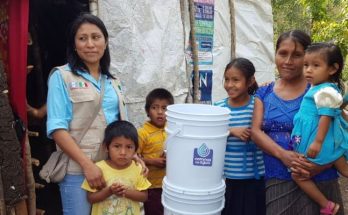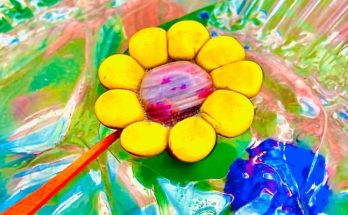By San Miguel Hiking
For two decades, the San Miguel Hiking Group has provided people the opportunity to join us to experience nature, outdoor fun, exercise, and new friendships.
We support projects preserving the environment and fostering an appreciation for local culture and understanding between rural communities and visitors.
We hike some of the most beautiful trails around San Miguel de Allende. You can post photos and ask questions related to hiking in the area.
Advertising and self-promotion are prohibited on this page except once a month for people or companies promoting nature-related activities. No products.
About The Hikes
Our hikes all require a good level of fitness and preparation.
Easy: About 4 hours, suitable for all physically fit people
Moderate: 4 to 6 hours with some elevation change (typically 200-400 meters)
Difficult: Over 6 hours with substantial elevation change (200-600 meters), climbing, and bushwhacking all possible
Volunteers lead the groups. Individual hikers must take personal responsibility for their own preparedness and safety, cooperate to ensure the cohesion of the group and safety of others, and respect the owners of the terrain over which we hike.
Each hiker is responsible for assessing their level of fitness for hiking and arriving properly equipped with protective clothing and supportive footwear; bringing at least one liter of drinking water, sun protection, hat, and lotion, plus gloves and hiking poles if desired.
To assess adequate physical fitness for hiking, here are two relevant tests:
1. For shorter hikes to lower altitudes, walk east from the Parroquia up Calle Correo until reaching Salida Queretaro; repeat this a second time. If this cannot be completed two times without undue fatigue, you are NOT ready to hike with this group.
2. For longer hikes up the volcano in the Picacho Mountains, where some altitudes are over 9,000 feet, go to the east end of Juarez Park and begin climbing steps. Climb past the El Chorro washing tubs, then continue up past Calle El Chorro and the Cultural Institute until reaching Salida Queretaro. This test includes 265 steps and several sloped walking segments. If you cannot complete this test, you are NOT ready for our more challenging hikes.
If visiting from a low altitude area, it is recommended that you acclimate for at least five days before hiking.
Projects Supported:
Doña Juana
Project organized by Cuerpos de Conservación Guanajuato, A.C., sponsored by the Department of Environment and Sustainability of San Miguel de Allende (DMAS) and Fondo Verde de San Miguel de Allende and private sponsors.
The ejido of Doña Juana started the soil restoration and reforestation activities in 2019, signing an agreement to regenerate and protect 42.3 ha of its common lands devasted by overgrazing and erosion. As part of the agreement, Doña Juana committed to keeping cattle outside this area for several years while the land recovers.
In 2021, the ejido of Doña Juana planned to increase its conservation area to a total of 100 ha. The ejido is using a grant provided by the San Miguel Hiking Group to acquire material and tools for two small projects:
A cattle trough outside the conservation area with tubes to connect with the dams inside the conservation area. These will help keep cattle outside the conservation area, especially during the dry season, when the cattle owners become impatient.
A small gate in the fence in the upper part of the conservation area. This will help create a trail in Doña Juana, passing through the conservation area, as part of a planned educational “senderismo” (hiking) project.
Caminos de Agua Education Materials Donation
The San Miguel Hiking Group is proud to announce that it has awarded its second grant. 15,000 pesos are going to Caminos de Agua, A.C. Caminos de Agua works in partnership with local communities and grassroots organizations to create long-term sustainable water solutions through projects and capacity training in rural villages (communities) as well as urban locations. This grant, made during their March Match Campaign, was matched by generous donors and will help pay for educational material used in their water collection and purification workshops.
Lomas Dimas
Located in Puerto de Nieto on the road to Queretaro, the community planted more than 15,000 native plants, such as maguey (agave), mesquite, and ocotillo; built trenches and stone terraces to stop water erosion; and hired locals (mainly women) to trim and clean paxtle (Tillandsia recurvata, or ball moss) from trees. They are also starting to use maguey leaves to feed animals and lessen overgrazing that leads to land deterioration.
This fragile beginning needs reinforcement, and we can help with fencing. A small grant of 15,000 pesos will provide for adding posts and barbed wire to the original structure and keep the new plantings from grazing animals. So far 9,400 pesos was donated by hiking group guides and participants.




